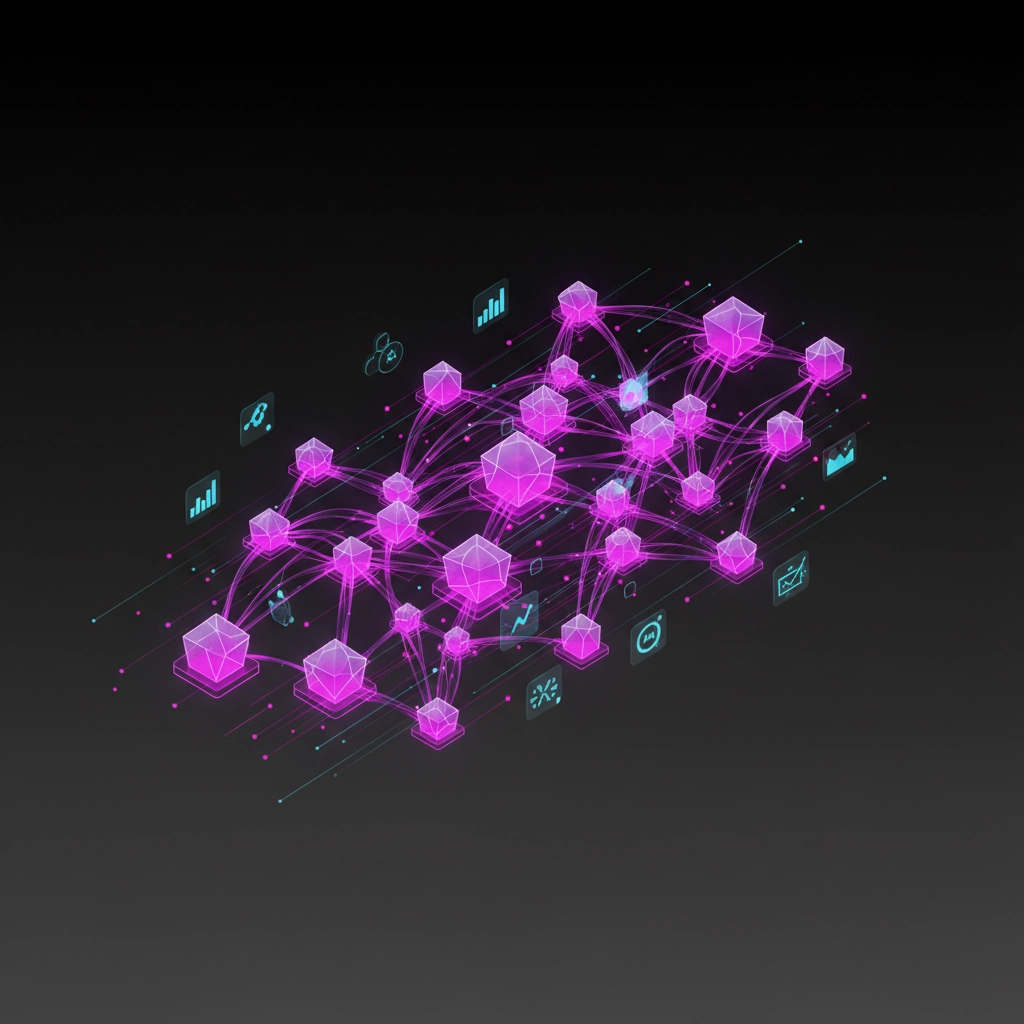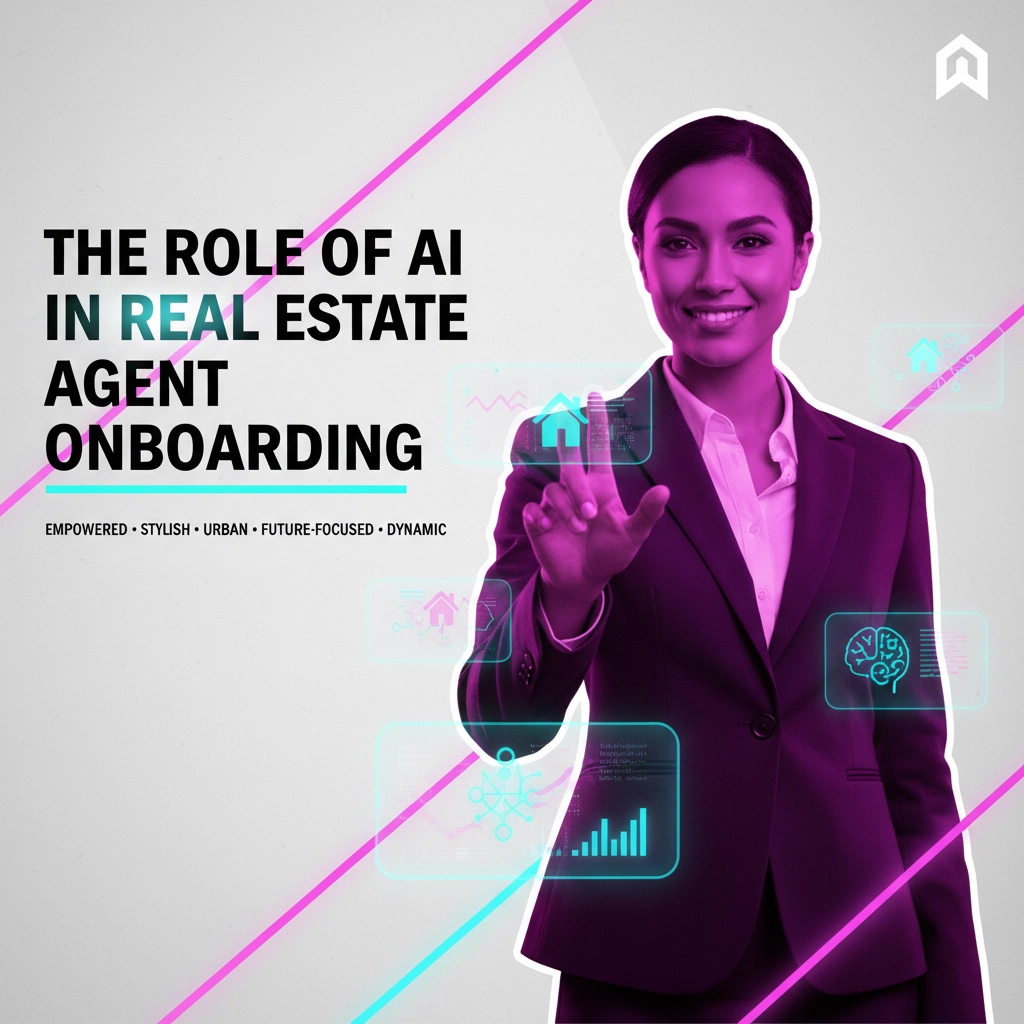Real estate brokerages face mounting pressure to onboard new agents faster while maintaining compliance standards. AI transforms this process by automating administrative tasks, accelerating compliance verification, and creating structured pathways for new agent success.
Traditional onboarding methods consume weeks of manual processing. AI-powered systems complete the same tasks in days, freeing up leadership time for strategic activities while ensuring consistent experiences across all new hires.
Automated Compliance and Authorization
AI expedites the most time-consuming aspects of agent onboarding. Background checks that previously required manual coordination now complete automatically. License verification happens in real-time. Compliance documentation processes through intelligent workflows that flag issues immediately.
This automation directly impacts business velocity. Agents begin generating revenue sooner. Brokerages reduce administrative overhead. Compliance risks decrease through systematic verification processes.

Authorization workflows integrate with state licensing databases. AI systems cross-reference agent credentials against regulatory requirements, ensuring all agents operating under brokerage umbrellas maintain proper authorization. This systematic approach prevents costly compliance violations.
Structured Onboarding Framework
Effective AI-enabled onboarding follows a multi-phase structure that balances automation with human interaction.
Pre-Onboarding Foundation
AI CRM systems generate personalized welcome sequences immediately after contract signing. New agents receive branded digital packets containing essential resources, login credentials, and company handbooks. Automated data collection gathers licenses, tax forms, headshots, and biographical information.
Communication channels establish automatically. Agents gain access to company Slack workspaces or WhatsApp groups. Task lists populate with completion tracking. Progress dashboards show onboarding status in real-time.
First Week Activation
Automation handles account setup across all company systems. Training modules assign automatically based on agent experience levels. Compliance forms route through approval workflows without manual intervention.
Human leaders focus on orientation sessions and goal-setting activities. AI systems send daily check-ins and completion reminders. Agents falling behind trigger automatic notifications for personal follow-ups.
Ongoing Integration
Workflow automation ensures consistency across all new hires. Event-based triggers send welcome packets, disclosure reminders, and document notifications. Task completion tracking identifies bottlenecks before they impact agent productivity.

Integration with PWRU’s onboarding platform streamlines this entire process through intelligent automation that adapts to different agent profiles and experience levels.
Performance Tracking and Analytics
AI transforms onboarding from a checkbox exercise into a performance optimization system. Real-time analytics track completion rates, identify common roadblocks, and measure time-to-productivity metrics.
Call coaching systems analyze agent communications from day one. Performance scoring covers multiple data points including response times, objection handling, and client interaction quality. New agents receive quantifiable feedback that accelerates skill development.
Pulse Intelligence provides brokerages with comprehensive onboarding analytics. Completion rates by phase, average time-to-first-transaction, and retention correlations help optimize the entire process. Schedule a demo to see how these insights transform agent development.
Workflow Automation Benefits
Manual onboarding creates inconsistent experiences. Some agents receive thorough preparation while others miss critical steps. AI standardizes these processes while scaling operations efficiently.
Automated workflows trigger specific actions based on completion events. Document signing generates next-step notifications. Training completion unlocks advanced modules. License verification enables transaction access.
This systematic approach reduces human error while ensuring all necessary steps occur in correct sequences. Administrators spend less time tracking individual progress and more time supporting strategic initiatives.

Technology Integration
Successful AI onboarding requires robust technology foundations. CRM platforms need automation capabilities for recruiting, training, and communication workflows. Integration APIs connect disparate systems for seamless data flow.
Email sequences, task assignments, and progress tracking operate through unified dashboards. Agents access all resources through single sign-on portals. Administrators monitor system-wide metrics through real-time reporting.
PWRU’s comprehensive platform provides these integrated capabilities through purpose-built real estate technology that scales with brokerage growth.
Training Enhancement
AI-powered training systems adapt to individual learning patterns. New agents progress through modules at optimal paces. Assessment results identify knowledge gaps requiring additional attention.
Interactive simulations prepare agents for real-world scenarios. Role-playing exercises with AI feedback improve communication skills. Performance benchmarks track improvement over time.
Call coaching integration provides ongoing development beyond initial onboarding. Every client interaction becomes a learning opportunity through automated analysis and feedback delivery.
Implementation Strategy
Effective AI onboarding implementation requires strategic planning. Technology selection should prioritize platforms with strong automation features and real estate industry focus. Integration capabilities determine how well systems work together.
Change management considerations include agent adoption rates and leadership training requirements. Clear communication about AI’s supportive role prevents resistance. Success metrics establish baseline measurements for improvement tracking.
Maintaining personal connections remains crucial. Automation should enhance rather than replace human relationships. Live check-ins, celebration of achievements, and personal support create lasting agent loyalty.

Competitive Advantages
Brokerages implementing AI onboarding gain significant market advantages. Faster agent activation translates to quicker revenue generation. Consistent processes improve agent satisfaction and retention rates.
Scalability improvements allow rapid expansion without proportional administrative growth. Quality standards maintain consistency across multiple locations and team sizes.
Data-driven optimization identifies successful onboarding elements for replication. Performance analytics reveal which approaches produce the most productive agents.
Future Development
AI onboarding capabilities continue advancing rapidly. Natural language processing improves automated communications. Machine learning algorithms optimize individual agent pathways.
Predictive analytics forecast agent success probability based on onboarding performance. Early intervention systems identify at-risk agents for additional support. Integration capabilities expand across more real estate technology platforms.
Voice-activated assistants guide agents through complex processes. Mobile-optimized experiences accommodate on-the-go learning preferences. Virtual reality training simulations prepare agents for challenging scenarios.
The trajectory points toward increasingly sophisticated automation that maintains human connection while maximizing efficiency. Brokerages adopting these technologies early establish competitive positioning for sustained growth.
AI transforms real estate agent onboarding from administrative burden into strategic advantage. Automation handles routine tasks while human leaders focus on relationship building and performance optimization. The result is faster agent productivity, improved retention rates, and scalable growth capabilities that position brokerages for long-term success.





